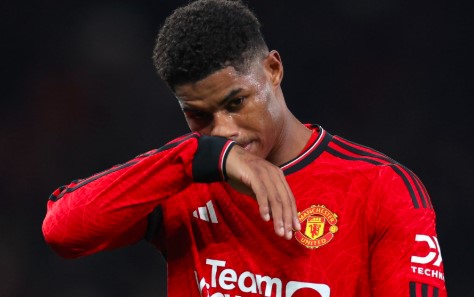Troy Deeney, the seasoned footballer known for his candidness and leadership, has recently voiced his concern about Marcus Rashford’s footballing future. In a thought-provoking discussion, Deeney suggested that the Manchester United and England forward might step away from the sport before the age of 30, given the immense pressures he faces both on and off the pitch. While the idea of an early exit from football for one of the most talented players in England may seem shocking, Deeney’s intention is clear—he wants to mentor Rashford and help him navigate the complex challenges of a professional football career.
The Challenges of Modern Football
Marcus Rashford, now in his mid-20s, has achieved an extraordinary amount both as a footballer and a philanthropist. From scoring crucial goals for Manchester United to championing free school meals for underprivileged children, Rashford has become a household name for his impact beyond the game. However, this dual role comes at a cost.


Deeney believes that the weight of expectations placed on Rashford, compounded by the relentless scrutiny of fans and media, could lead to burnout. In an era where players are not just athletes but also public figures, the mental and emotional toll can be overwhelming.
“Rashford has already given so much to football and society,” Deeney said. “But there’s a risk that he might feel exhausted by it all, and we’ve seen players retire early when they don’t feel the passion anymore.”
Deeney’s insight stems from his own experience in football. Having navigated the highs and lows of a long career, the Birmingham City captain has seen how external pressures can erode a player’s love for the game.
Deeney’s Offer of Guidance
Troy Deeney isn’t merely speculating about Rashford’s future—he’s offering solutions. Deeney expressed a genuine desire to mentor Rashford, believing that guidance from someone who understands the challenges of professional football can make a difference.
“Marcus has an incredible platform, but he also has the weight of the world on his shoulders,” Deeney explained. “I want to help him manage that, to make sure he finds the right balance between football and everything else.”
Deeney emphasized the importance of creating a supportive environment where Rashford can focus on what truly matters to him. This could involve refining his priorities, building a robust support network, and learning to say no when necessary.
Why Rashford Might Leave Early
Several factors make Deeney’s prediction plausible. Rashford’s career trajectory has been relentless since he burst onto the scene as a teenager, scoring two goals on his Manchester United debut in 2016. The pressure to perform at the highest level for club and country, coupled with the expectations of being a role model, can take a toll.
In addition, Rashford’s off-field activism—while inspiring—requires significant time and energy. From his campaign against child hunger to his advocacy for education, Rashford’s commitments extend far beyond the pitch.
Deeney highlighted how these dual responsibilities could lead Rashford to consider an early retirement. “Football isn’t just about the game anymore,” Deeney said. “For players like Marcus, it’s about being an ambassador, a philanthropist, a role model. That can be draining.”
The Importance of Mental Health
Deeney’s comments also underscore the growing awareness of mental health in football. In the past, players were expected to soldier on regardless of their emotional or mental state. Today, however, there is greater recognition of the need for support systems to help players cope with the pressures of the modern game.
“Players are human beings first,” Deeney said. “We need to create a culture where they can speak openly about their struggles and get the help they need.”
A Call to Action
While Deeney’s remarks may sound alarming, his message is ultimately one of hope and support. By offering to mentor Rashford, he is setting an example for other senior players to step up and guide the next generation.
“Marcus is a once-in-a-lifetime talent, both on and off the pitch,” Deeney concluded. “It’s not about keeping him in football for as long as possible—it’s about making sure he’s happy and fulfilled in whatever he chooses to do.”
As Rashford continues to balance his footballing career with his social impact work, the support and advice of experienced professionals like Deeney could prove invaluable. With the right guidance, Rashford can carve out a path that allows him to thrive both as a player and as a person, whether he retires at 30 or goes on to play much longer.







